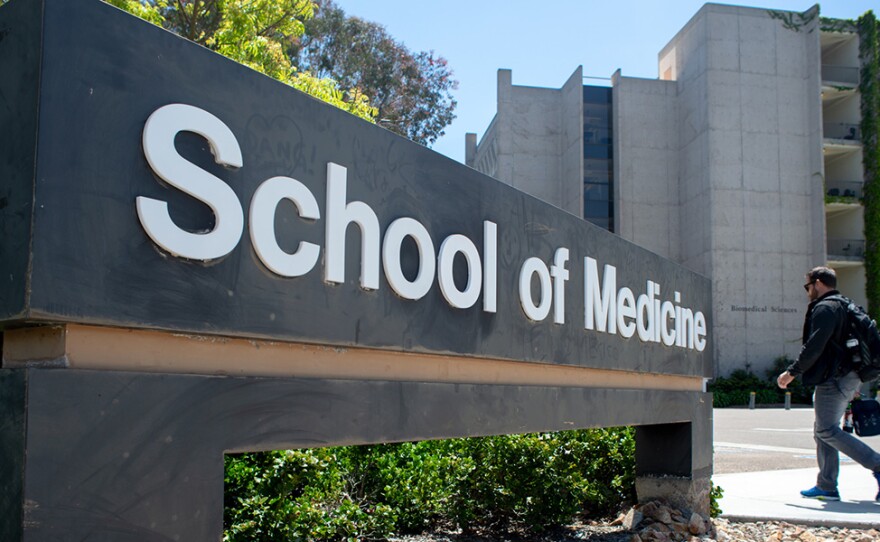Researchers at UC San Diego School of Medicine and UC San Diego Health announced Thursday they will begin a clinical trial Monday to assess the safety and efficacy of convalescent plasma treatment to prevent COVID-19.
The plasma therapy involves infusing patients with antibodies extracted from the blood of donors who have successfully recovered from COVID- 19, with the hope that the resulting boost to their immune systems will shorten the length and reduce the severity of the disease.
The UC San Diego trial is part of a larger, national effort approved by the U.S. Food and Drug Administration. The goal is to create a network of hospitals and blood banks collecting, isolating, processing and testing whether plasma from COVID-19 survivors has therapeutic preventive value. The national trial is being coordinated by Johns Hopkins University and sponsored by the National Insitute of Health through the Department of Defense.
"With convalescent plasma therapy, we want to act prophylactically, using a product with known high-titers (concentrations) of neutralizing antibodies," said Dr. Edward Cachay, an infectious disease specialist at UC San Diego Health and professor of medicine at UC San Diego School of Medicine. "We want to learn how we can prevent sickness, how we can prevent COVID patients from needed mechanical ventilation and how we can prevent them from dying from the disease."
RELATED: If You’ve Recovered From Coronavirus, The Blood Bank Wants Your Plasma
Before the emergence of antibiotics, plasma was used to prevent and treat a host of bacterial and viral infections, including diphtheria, scarlet fever and pertussis and was used during the 1918 influenza pandemic.
In general, plasma treatment has proven safe, but its effectiveness has varied with disease and among individuals. Studies of plasma therapies for SARS, MERS and the 2009 H1N1 influenza showed measurable reductions of mortality, but efforts to treat Ebola virus infections during the 2014-16 outbreak in West Africa were inconclusive.
In cases of infection by the novel coronavirus, it appears the human immune system begins producing antibodies to the disease five to 10 days after the initial infection. The antibodies bind to the targeted coronavirus, stopping it from latching onto new cells and beginning the production of more viral particles. Over the course of two or so weeks, the body clears out the virus, but antibodies to it remain. The depth and length of subsequent immunity have not been determined.
Plasma is the liquid portion of blood that carries blood components throughout the body, such as red and white blood cells, platelets, salts and enzymes. It also contains proteins and antibodies produced by the body's immune system to fend off invasive pathogens such as SARS-CoV-2 — the virus which causes coronavirus.
To qualify as a plasma donor for COVID-19 patients, donors must be at least 17 years old, weigh at least 110 pounds, be in good health and have a prior, verified diagnosis of COVID-19 but are now symptom-free and fully recovered.
The UC San Diego Health clinical trial will recruit 487 qualifying participants for the study.
For information about participating in the trial, contact Donna Brusch, senior study research coordinator, at dbrusch@health.ucsd.edu or call 760-505-6649. Interested persons can also go to he study website at covid- plasmastudies.com/, which includes an online screening process.






